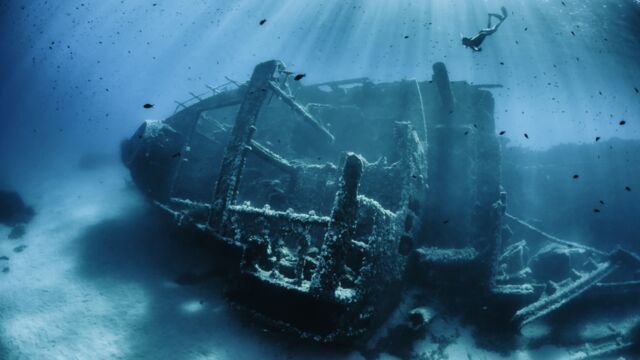About 2 kilometres below the surface of the Levantine Sea in the Mediterranean lay 12 sunken ships only recently discovered by a team of researchers. Using some pretty sophisticated technology they were able to uncover wreckage and treasures left behind for centuries.
Discover our latest podcast
The wreckage along with hundreds of pieces of artefacts ranging from Chinese porcelain to tobacco pipes was unearthed in a particularly muddy portion of seabed between Lebanon and Cyprus. This could explain why they stayed hidden for so long, as the shifting muds make it extremely hard to find any relics.
Among the sunken ships, that mainly served in the spice and silk trades for the Greek, Roman and Ottoman Empires was a gigantic 17-century Ottoman vessel that was 43 meters long and is said to have sunk in 1630. They were found along a previously unknown trade route that stretched from China all the way to the Mediterranean Sea.

Some of the cargo found on the Ottoman vessel were early clay tobacco pipes and Ming Dynasty Chinese porcelain originally used for drinking tea. It is now thought that the Ottomans used them for coffee drinking - a trend that was beginning to gain traction at the time in the East.
This changes the way historians now look at the Ottoman Empire. Traditionally thought of as barbarians, tobacco smoking and coffee drinking at the time were associated more with modern and civil society. With these findings, it is hinted that the Ottoman Empire may have adopted these practices even before Europeans. As the first coffeehouse in London didn't even open until 1652.















